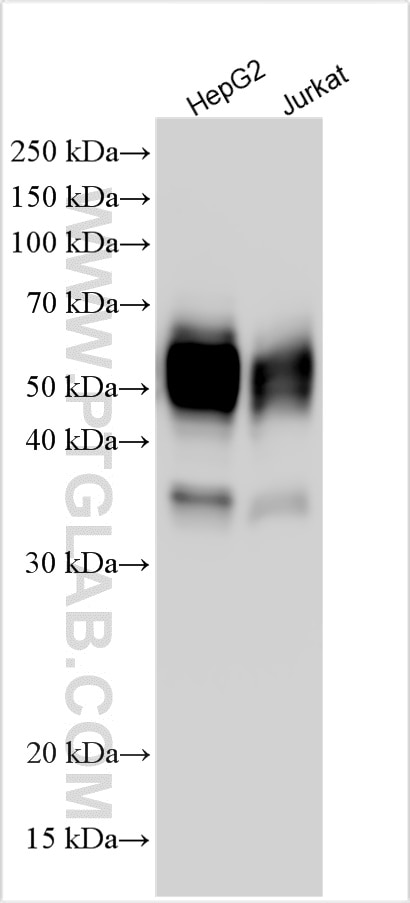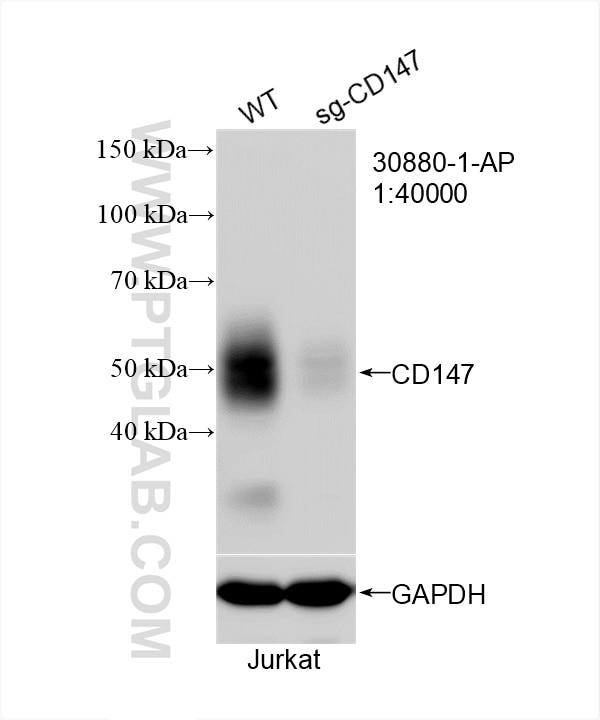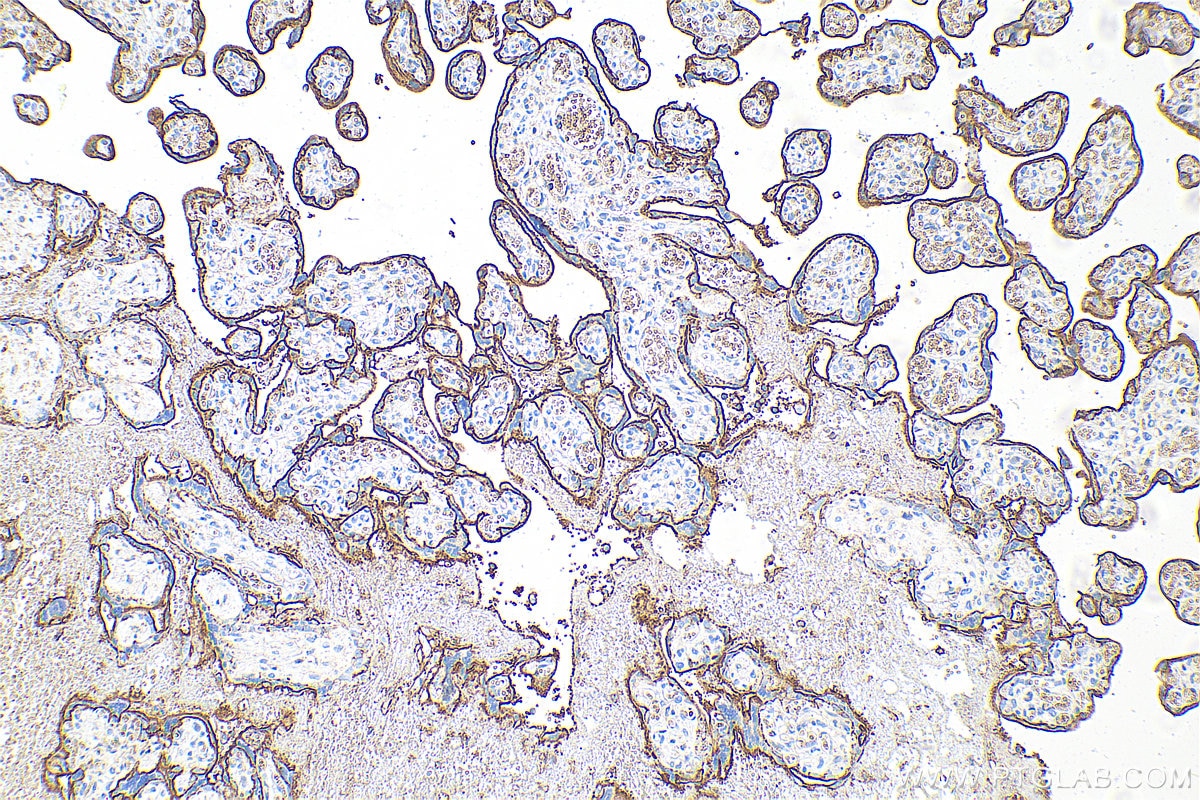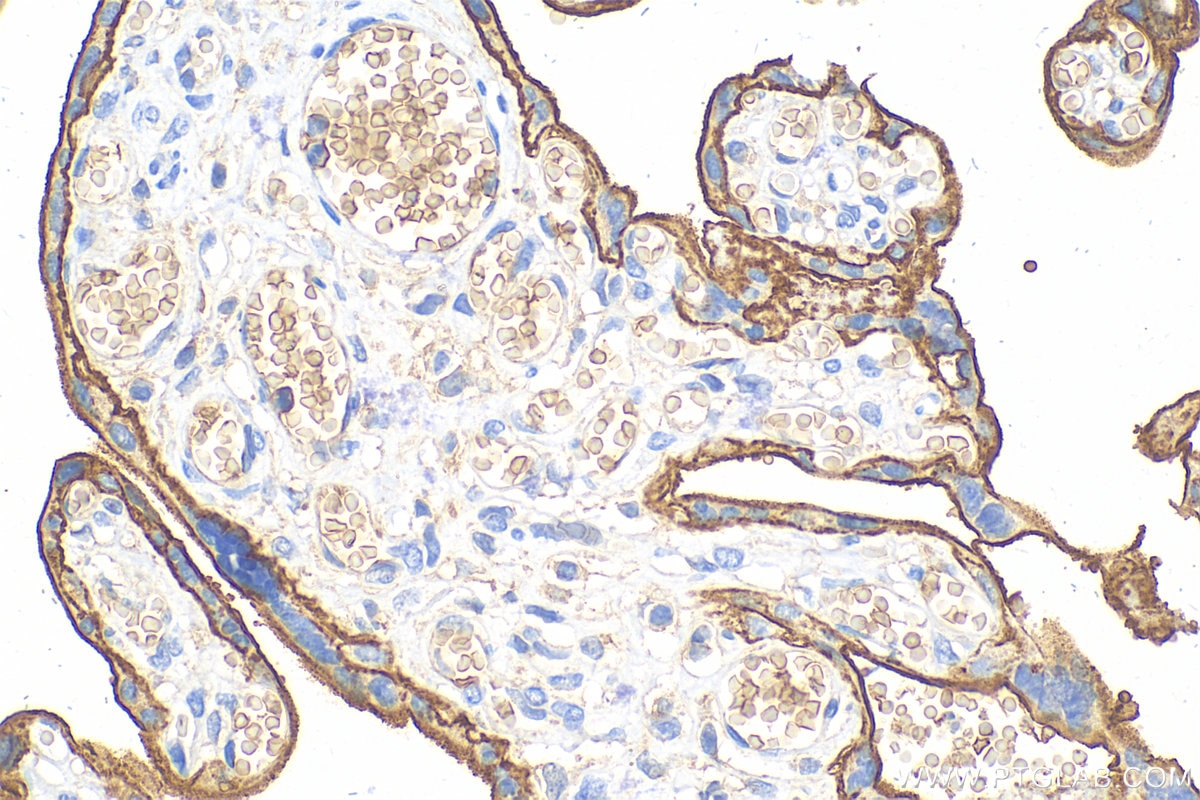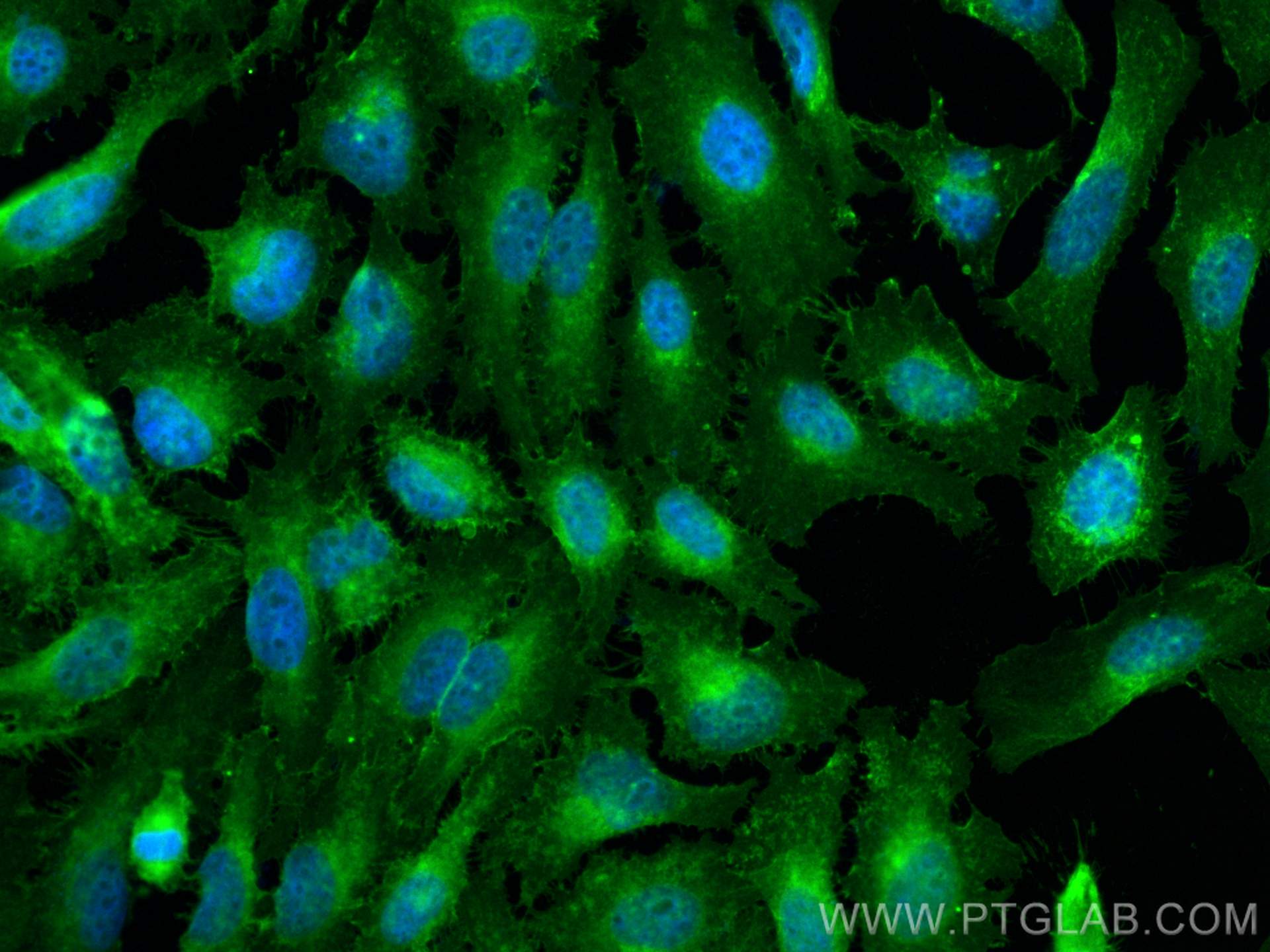- Phare
- Validé par KD/KO
Anticorps Polyclonal de lapin anti-CD147
CD147 Polyclonal Antibody for WB, IHC, IF/ICC, Indirect ELISA
Hôte / Isotype
Lapin / IgG
Réactivité testée
Humain
Applications
WB, IHC, IF/ICC, Indirect ELISA
Conjugaison
Non conjugué
N° de cat : 30880-1-PBS
Synonymes
Galerie de données de validation
Informations sur le produit
30880-1-PBS cible CD147 dans les applications de WB, IHC, IF/ICC, Indirect ELISA et montre une réactivité avec des échantillons Humain
| Réactivité | Humain |
| Hôte / Isotype | Lapin / IgG |
| Clonalité | Polyclonal |
| Type | Anticorps |
| Immunogène | CD147 Protéine recombinante Eg0436 |
| Nom complet | basigin (Ok blood group) |
| Masse moléculaire calculée | 385 aa, 42 kDa |
| Poids moléculaire observé | 35-55 kDa |
| Numéro d’acquisition GenBank | BC009040 |
| Symbole du gène | CD147 |
| Identification du gène (NCBI) | 682 |
| Conjugaison | Non conjugué |
| Forme | Liquide |
| Méthode de purification | Purification par affinité contre l'antigène |
| Tampon de stockage | PBS only |
| Conditions de stockage | Store at -80°C. 20ul contiennent 0,1% de BSA. |
Informations générales
CD147, also known as Basigin or extracellular matrix metalloproteinase inducer (EMMPRIN), is a transmembrane glycoprotein that belongs to the immunoglobulin superfamily (PMID: 7812975). The molecule is composed of an intracellular portion, an extracellular portion and a single transmembrane region. CD147 is expressed on a variety of cell types (e.g., hematopoietic, epithelial, and endothelial cells) and at varying levels (PMID: 32968061). Increased expression of CD147 occurs in many tumors. CD147 is a pleiotropic molecule that plays an important role in fetal, neuronal, lymphocyte and extracellular matrix development (PMID: 17945211). CD147 has been identified as a receptor essential for erythrocyte invasion by Plasmodium falciparum (PMID: 22080952). It has been reported that spike protein of SARS-CoV-2 binds to CD147 on host cells, thereby mediating the viral invasion (Wang, Ke, et al, BioRxiv, 2020).
